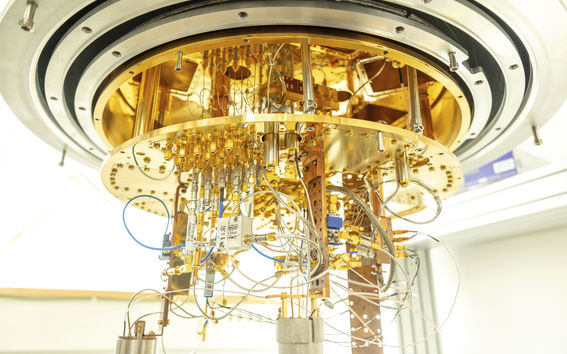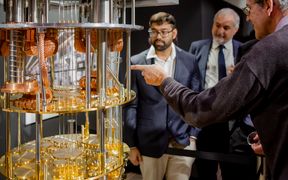InstituteQ - The Finnish Quantum Institute (external link)
InstituteQ coordinates quantum research, education, and business in Finland

A massive wave of new funding has now been dedicated to quantum research, education, and technology development in Finland. The Research Council of Finland on January 11 awarded €13 million to the newly launching Finnish Quantum Flagship (FQF) project.
Initial flagship plans anticipate roughly the same amount of funding to be contributed by the various member organisations that make up the flagship. These sums would represent only the first five years of funding for the eight year project. FQF plans to kick off its master plan in March 2024.
FQF comprises the following host organisations: Aalto University (coordinator), VTT Technical Research Centre of Finland, the University of Helsinki, the University of Jyväskylä, Tampere University, the University of Oulu, and CSC-IT Centre for Science.
‘With funding in hand, FQF is now armed with the necessary resources to broaden interdisciplinary quantum expertise and translate it beyond the scientific community. This is important. Finland is one of the known forerunners in quantum technologies, and our national collaboration is flexible. Although global competition is getting fierce, the spirit of collaboration among Finnish universities, research institutions, government agencies, and industrial partners is what sets us apart from other countries. The launching of this flagship will serve as a catalyst in bolstering Finland’s excellency in education, research, and industrial development in quantum technologies,’ says FQF Director Peter Liljeroth, a professor of physics at Aalto University.
The flagship’s timeline is planned for 2024-2031 and represents a multifaceted advancement of the Finnish quantum ecosystem. Other than sponsoring cross-collaboration between the dozens of research groups in FQF, the newly awarded funds will be used to attract, train, and retain international talent—a persistent problem of the field and a key focus area of FQF.
Additionally, the funds will be used to initiate new research activities and industrial endeavours, as well as to raise awareness of quantum technology in Finnish society via open-access educational programmes and trainings.
While codifying a quantum-ready Finland is at the forefront of FQF objectives, establishing networks between other Nordic states is also top-of-mind. FQF members are performing an ongoing landscape analysis with their counterparts from Sweden, Denmark, and Norway as part of the Nordic Quantum international collaborative. This group aims to identify fruitful areas of collaboration in quantum technology research and development between the Nordic states.
Broader European collaboration and bilateral relations with countries like the United States have also been underway for some years, and these are based on public declarations.
FQF is hosted within InstituteQ, which is the Finnish quantum institute that serves as an umbrella collaborative organisation in quantum science and technology. Founded in 2021 between Aalto University, VTT and the University of Helsinki, InstituteQ aids in the facilitation of highest-level research, the adoption of novel technologies, the development of new commercial opportunities, and the development of national training programs.
FQF Director Peter Liljeroth & InstituteQ Director Jukka Pekola discuss Finland's quantum tech landscape.

Learn more about the groups involved in FQF activities.

InstituteQ coordinates quantum research, education, and business in Finland

The national Quantum Technology Finland (QTF) Centre of Excellence brings together scientific and technological excellence and cutting-edge research infrastructures to harness quantum phenomena in solid-state-based quantum devices and applications.

The flagship unites dozens of research institutions, companies, and startups in new collaborative front



